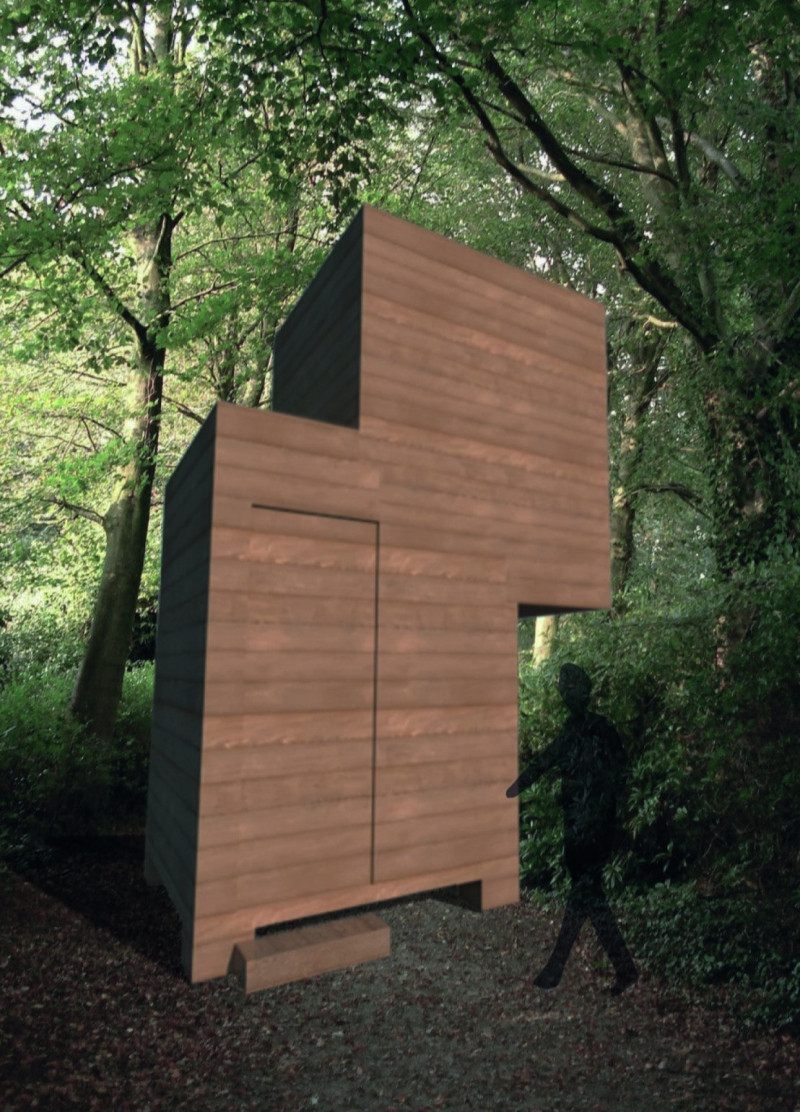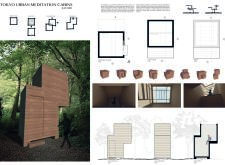5 key facts about this project
Tokyo Urban Meditation Cabins is a thoughtfully designed space located in the vibrant city of Tokyo. It aims to support meditation practices for individuals with diverse needs and experiences. The concept revolves around providing a peaceful retreat from the urban environment, allowing users to connect with themselves and their surroundings in a meaningful way.
Spatial Organization
The structure is organized into two levels that offer different experiences. The first level is an enclosed space with darker tones, specifically designed for introspection and focused meditation. This environment is intended to minimize distractions, creating a private setting where individuals can reflect quietly and deepen their meditative practice.
Atmospheric Contrast
In contrast, the second level embraces openness and natural light. This space encourages meditation that connects with the outside world, allowing users to experience the presence of nature and hints of the bustling city. The design fosters a balanced atmosphere, guiding individuals to engage with their environment while finding moments of calm.
Fluid Movement
A key feature of the design is the absence of barriers. The layout promotes fluid movement throughout the cabins, similar to the way meditation itself flows. This openness enhances accessibility, enabling users to move freely and adapt their meditation styles according to personal needs and preferences. It invites exploration in how one interacts with space during practice.
Light and shadow within the architecture create an engaging experience. Natural light in the upper level contrasts with the subdued lighting below, enhancing the distinction between introspective solitude and the liveliness of the outside world. This interplay helps deepen the user’s meditation, fostering a connection that resonates well beyond the physical space.


















































